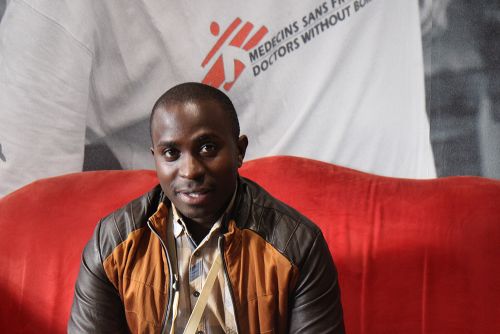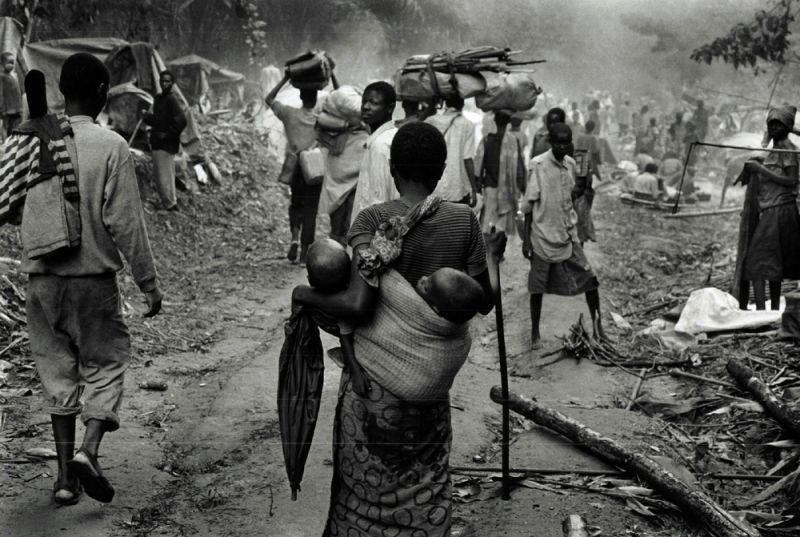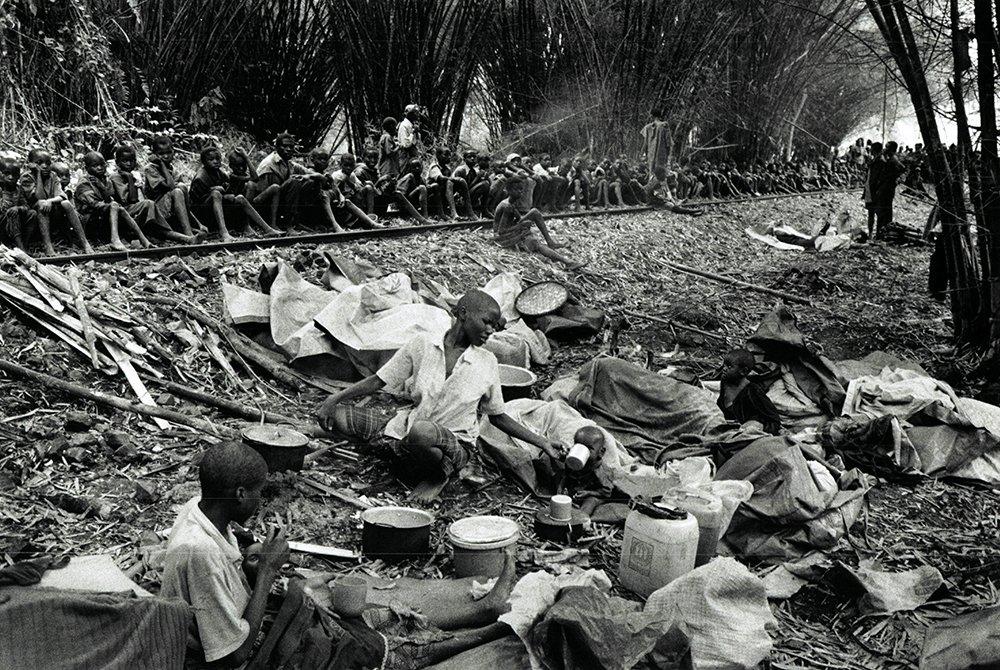
Once an MSF beneficiary, Rwandan pharmacist Dominique Mukunzi now finds satisfaction helping others in desperate need of care. He shares his motivation for doing humanitarian work:
“In 1994 I was 11 years old when we fled.
“The genocide just took place in my home country Rwanda, and we had to escape. We walked for days, all the way across the border, into the Democratic Republic of Congo (DRC), until we reached the refugee camp in Bukavu. That’s where I first met MSF – in the refugee camps, helping people.
“We stayed in the camp in Bukavu for over a year. Then in 1996, war started in Bukavu, and we had to leave again. Once more we walked for days, all the way to Kisangani, 2,000km away.
“We walked during the day and stopped in Congolese villages at night, looking for food or somewhere to stay. Sometimes there were no villages along the way, so we just slept in plastic sheeting on the side of the road.
“There is something which stays in my mind from that journey. I remember being on the road to Kisangani, and there was a camp along the way. One day a small plane landed close to where we were, and it was MSF. MSF came to the middle of nowhere and made a small hospital which was helping refugees on the road.
Like the heart is to the body
“Before fleeing Rwanda, my father worked in a bank and my mother worked at Kigali hospital as a social worker. But with the violence, we had to leave (including my sister and two brothers). All in all, we spent three years on the road and in camps in the DRC. My mother got a job with MSF in the refugee camp, working in their nutrition centre. In 1997 it was finally safe enough to move home. We had to start everything over in Rwanda: home, work, and school for us kids.
“After school I went to university to become a pharmacist. The experience of my mother influenced me to want to work in a similar field. But I always wanted to be a pharmacist because I believe it’s a core part of saving lives. Working together with medical doctors, supplying treatment and drugs, we contribute to saving lives.
“To me, a pharmacist in the medical system is like what the heart is to the body. Without a heart, the body cannot get what it needs to survive. Similarly, in the medical system, the pharmacist deals with treatment and supplying drugs – giving someone who’s sick what they need to survive.
“I worked with the Rwandan health ministry for 7 months, and in a private pharmacy for 2 years. But MSF always stayed at the back of my mind. Knowing what MSF does to help people on the ground, experiencing it first-hand as a one-time beneficiary, I was motivated to join. So when there was an opportunity, I applied, and in 2016 went to Guinea to work at an HIV project. It started as a 9 month mission but I extended and stayed for longer than a year.

MSF is there because no one else is
“In different African countries, the needs are all so great, so the contexts can seem similar. Like the patients we help at our HIV project in Guinea often have similar health concerns to the patients we meet in hospitals in Rwanda or South Africa.
“But even though the contexts are similar, in MSF projects, you know you are usually there because no one else is. That’s the particularity in places where MSF intervenes: There are desperate needs, but also not enough resources or funds to meet those needs. That’s why I choose to work in this context instead of just at home, where there are still others helping.
“For me, working as a humanitarian is about seeing people who are in need, and helping them. Although there are other organisations doing humanitarian work, MSF inspires me. I remember the help MSF gave me when I was in need. I always keep that in mind, to remember to help what once helped me.
“So for me, MSF is not only a job, it’s a vocation. As a fieldworker you don’t work for the salary. You work because you have a need to help; to help people to live. And that is my motivation.”
Find out more about MSF's work in Rwanda.
